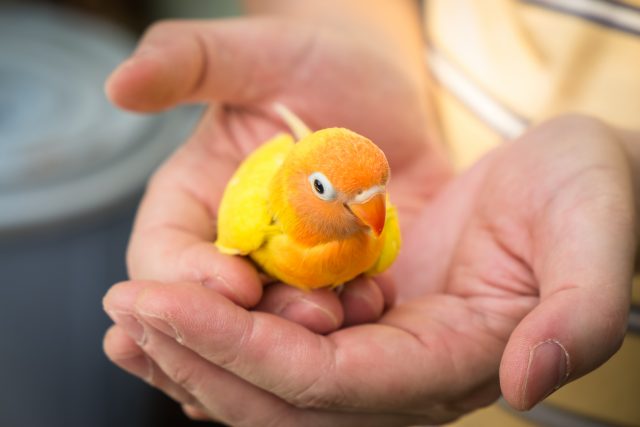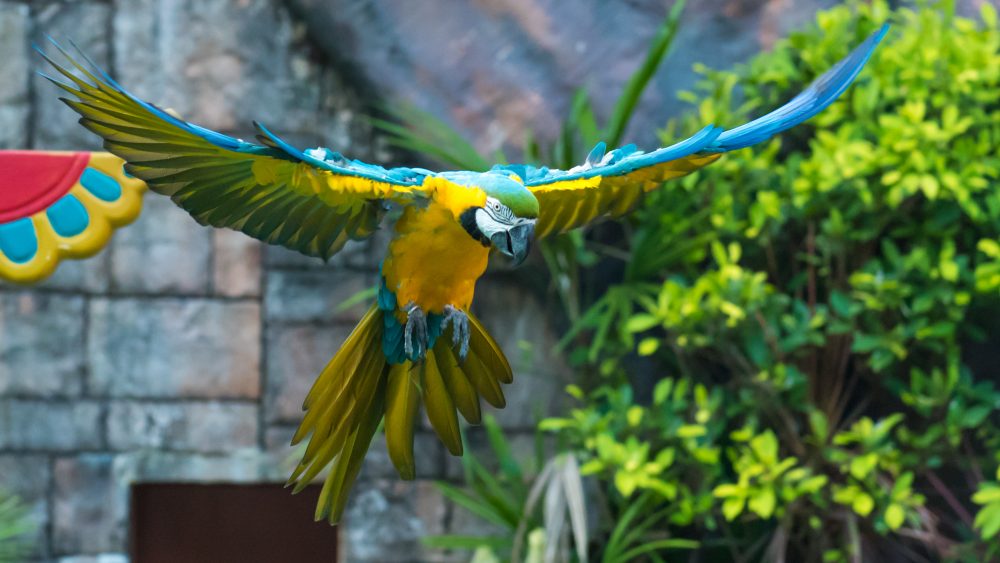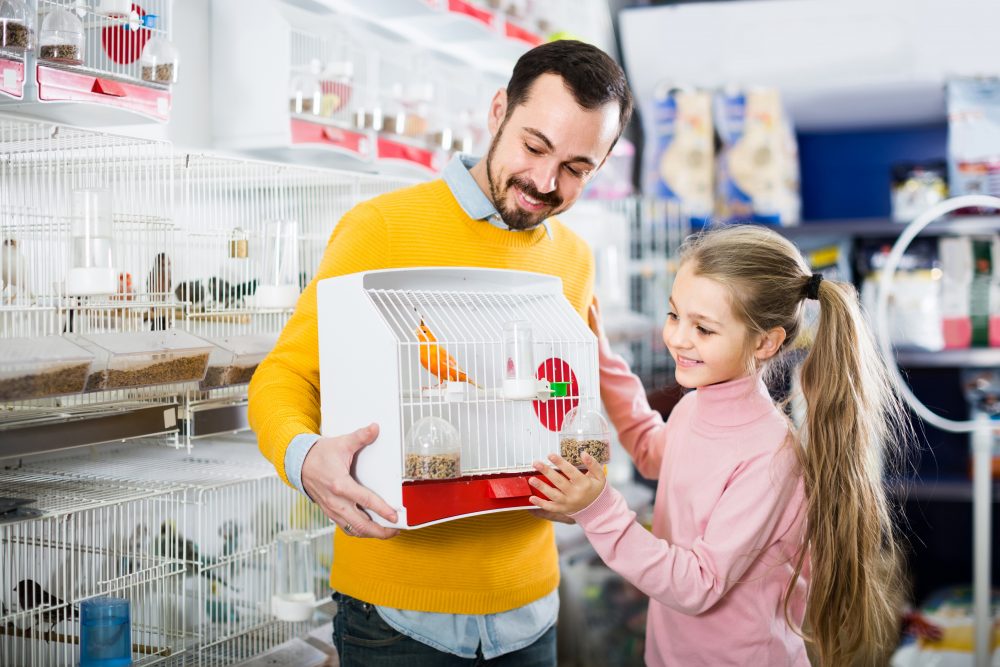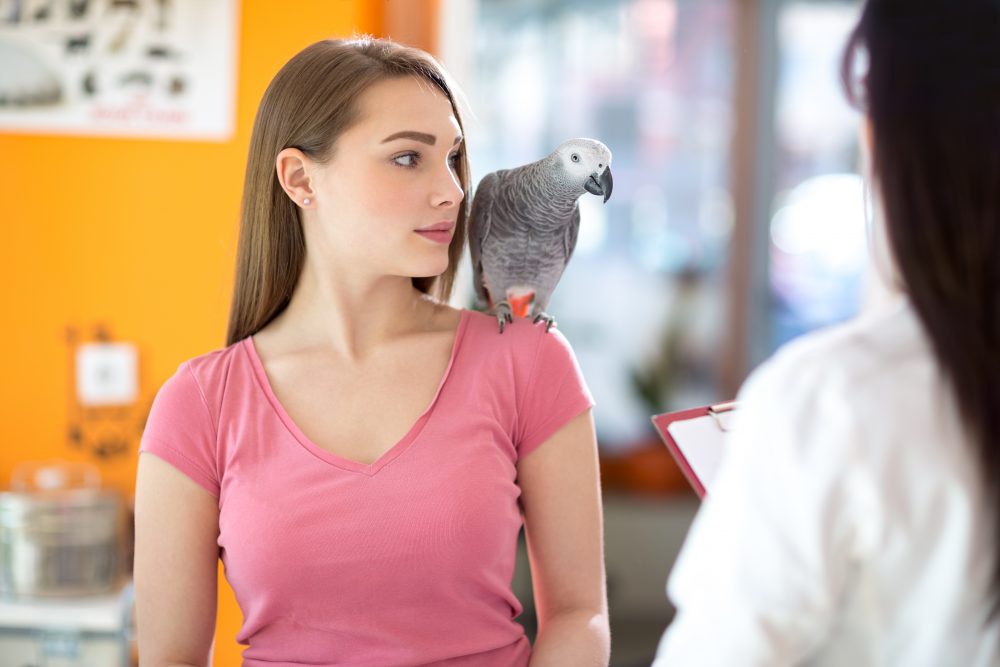You are probably well aware of the reasons a bird makes a good pet. However you are probably also concerned with the ethics of keeping a creature in a cage for your own amusement. If so, here are some things to keep in mind to be a responsible bird owner.
Having a pet is more than an amusement or a hobby of some sort. Pets provide valuable companionship and also teach a child responsibility. Birds made great pets: they are intelligent, sociable creatures who are responsive and in many cases can ‘speak’ as well. They are low-maintenance pets who typically don’t have expensive requirements. If you want a pet and have space constraints, they can be an excellent solution because they don’t need much in terms of space or resources. So certainly there are several excellent reasons to get yourself a bird as a pet; but how do you ensure that you’re a responsible and humane pet owner?
Know what you’re getting into
Birds are not domestic in the way that dogs, cats and cattle have been for centuries. They are wild and can be unpredictable in cases. Also, birds can be noisy and messy. Be prepared for this. As with all pets, birds are a significant responsibility. They have to be fed, cleaned and taken care of. If you have irregular work timings and/or travel a lot, you have to consider who will take care of your pet in your absence and how.
Some birds can be rather destructive and may shred wood or other accessible items. They may also bite as they have powerful beaks so you would need to be cautious about handling them and letting children handle them as well. Many can and do demand attention from their owners and will not be placated until they get that attention. Birds may also have specific and varied food requirements. Consider whether this is easily available and affordable for you. From time to time, a bird may need the attention of a vet. Is one easily accessible from where you are?
Some birds may also trigger allergies. If people in the family are prone to allergies, you may want to check out this aspect before buying or adopting a bird as a pet.
Owning a pet is a significant commitment
Some birds live really long. For instance, some parrots have a lifespan of over 50 years. So if you decide to have a bird as a pet, be prepared to love them and take care of them for a long time. If you already have a pet or plan to get another pet at a later date, will you be able to take care of and accommodate more than one? Consider this before getting a bird as a pet.
You cannot abandon a creature when it becomes inconvenient to you. You would essentially be abandoning the bird in a hostile, unfamiliar environment that it may be ill adapted for. After a significant time in captivity, your bird’s instincts would have dulled and it would not have the requisite skills to survive outside captivity.
Find out all about the bird you’re planning to get as a pet
Some bird species make better pets than do others. Lovebirds and parakeets make good pets for instance. Also, some birds are more sociable than others and may be quite miserable if they are on their own. In such cases, consider getting more than one bird but make sure they are the same or compatible species. Also, the sale and purchase of some birds may be considered trafficking and may be illegal. Check what species you are buying and whether you could get into trouble for this.
Different bird species have different requirements in terms of diet, temperature and other factors. Find out about these and ensure that you try to make the bird’s life as comfortable as possible. Exotic birds are all very well, but if they are not suited to the climate and altitude of the place where you live, it may not be fair to that bird.
Acquire your pet in a responsible fashion
It would be ideal if you could adopt a wild bird; one who would willingly spend time with you, let you feed it and so on. However, if you’re planning to buy a bird(s), check whether the bird was raised in captivity or stolen from the wild and whether the bird was kept in clean, hygienic, humane conditions. Why? Because birds may carry strains of certain illnesses which could be passed on to family members. Some sellers cruelly cut off the wings of birds while they are still babies so they cannot fly. If this is so, you ought not to patronize such sellers.
To cage or not to cage
Many of us feel guilty about the whole idea of putting a beautiful wild creature literally behind bars. However, the alternative may not be practical either. So perhaps you could take the middle path: choose as large a cage as is practically possible for your bird(s). Then, since birds need some time outside their cages as well, you could ensure that you let them loose in a secure area such as a large room or a covered courtyard on a regular basis.
Take care of your avian pet
Clean the cage out regularly, ensure that the bird has enough to eat and drink as well as adequate companionship. Speak to the vet if you see any signs of the bird being unwell or of being depressed. Teach your child to be loving and responsible towards the bird as well…remember kids can benefit greatly from learning these values.
















































